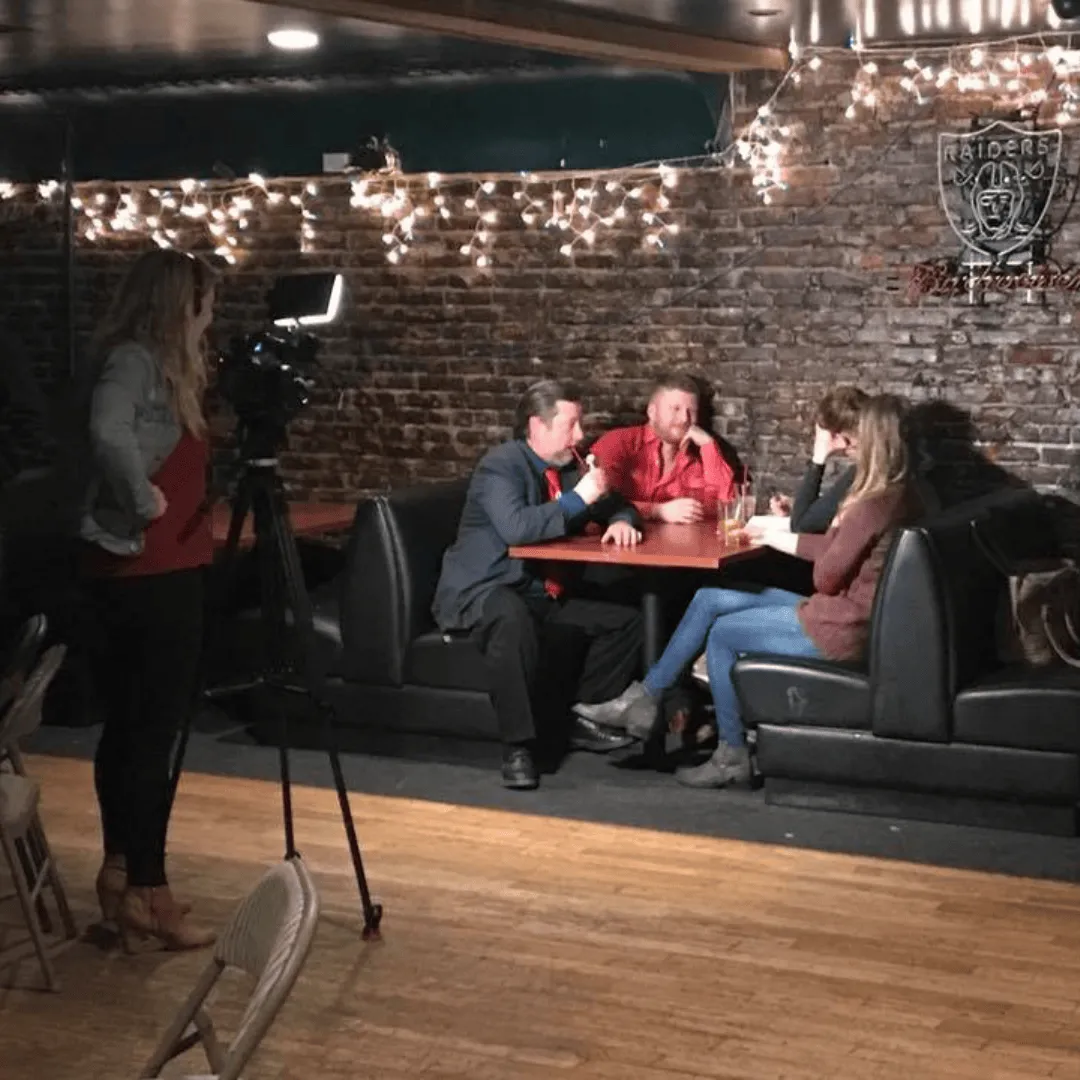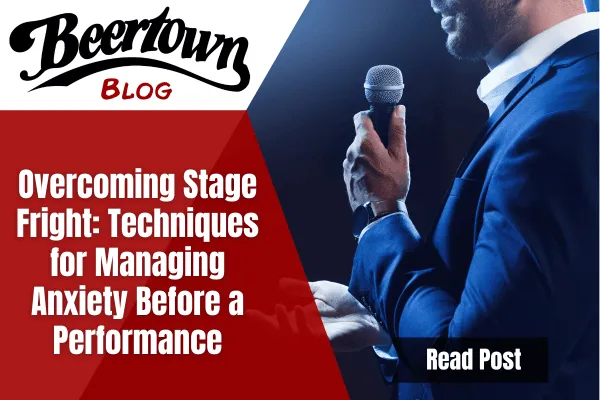featured events
MORE THAN JUST A COMEDY CLUB
Discover the best in Bend Comedy right here at Beertown Comedy. We’re redefining the comedy scene in Bend, Oregon, by partnering with diverse venues across Central Oregon to bring you top-notch comedy events. From hilarious open mic nights to performances by the biggest names in comedy, Beertown Comedy is your go-to spot for a night of laughter. Whether you’re looking for things to do in Bend or the best beer in town, Beertown Comedy offers a unique and unforgettable experience. Join us and see why we’re more than just a comedy club in Bend, Oregon.
upcoming shows

Comedian Submissions
Are You a Comedian Looking to Perform?
Beertown Comedy is constantly on the lookout for new Comedic Talent in the NW. We are consistently booking for various venues and are always keeping an eye out for solid Headliners, Features, Openers, and Hosts. If you are interested in working with us and performing on one of our shows please submit your information by clicking below to place yourself on our Beertown Comedy roster.
Trusted Venue Partners

MEDIA & Memories

Explore some of Beertown Comedy's favorite memories from our time producing comedy in the Northwest. Beertown Comedy, formerly known as Comedy & a Cause, has worked with some of the most talented artists in the world and has been producing Comedy Events since they were established in 2017.
Your Source For All Things Comedy
The Beertown Blog


Overcoming Stage Fright: Techniques for Managing Anxiety Before a Performance
Key Takeaways:
Understanding stage fright: Stage fright is a common fear experienced by performers, and it is important to acknowledge and understand the causes behind it in order to effectively manage anxiety.
Techniques for managing anxiety: There are various strategies that can help individuals overcome stage fright, such as shifting focus to their purpose, utilizing cognitive strategies to reduce fear, practicing relaxation techniques, developing healthy lifestyle habits, visualizing and mentally preparing, connecting with the audience, maintaining positive body language and posture, and embracing imperfection and self-acceptance.
Exploring alternative treatment options: In addition to the aforementioned techniques, individuals may also consider alternative treatment options for stage fright, such as therapy, medication, or natural remedies. It is important to consult with a healthcare professional to determine the most suitable approach.
Introduction
Stage fright can be a debilitating experience for performers, causing anxiety and hindering their ability to showcase their talents. This article explores various techniques for managing anxiety before a performance. By implementing these strategies, performers can alleviate their stage fright and deliver their best performances.
In addition, understanding the underlying mechanisms behind each suggestion can further empower performers in overcoming their fears. Ultimately, the goal is to provide a comprehensive guide for managing stage fright and promoting confidence on stage.
Understanding Stage Fright
When it comes to understanding stage fright, there are a few key aspects that we need to consider. Let's start by exploring the definition of stage fright, which sheds light on the nature of this anxiety. Additionally, we'll dive into the causes of stage fright, uncovering the underlying factors that contribute to this common phenomenon. By delving into these sub-sections, we can gain a deeper understanding of what exactly stage fright is and what triggers it, setting the stage for exploring effective techniques to manage this anxiety before a performance.
Definition of Stage Fright
Stage fright, also known as performance anxiety, is the intense fear experienced by individuals when faced with the prospect of performing in front of an audience. It is characterized by symptoms such as rapid heartbeat, trembling hands, sweating, and a sense of dread. The fear can range from mild discomfort to debilitating panic and can affect performers across various domains, including actors, musicians, public speakers, and athletes.
The fear associated with stage fright arises from a combination of psychological and physiological factors. Psychologically, it stems from a fear of judgment or criticism from others, a fear of failure or making mistakes, and a fear of embarrassing oneself in public. Physiologically, stage fright triggers the body's stress response system, leading to increased heart rate, shallow breathing, muscle tension, and heightened arousal levels.
To overcome stage fright and manage anxiety before a performance effectively, various techniques can be employed. Shifting the focus to one's purpose can help redirect attention away from self-doubt and towards the enjoyment and fulfillment derived from showcasing one's talent. Cognitive strategies like reframing negative thoughts and visualizing success can help reduce fear and build confidence. Relaxation techniques such as deep breathing exercises and progressive muscle relaxation can help calm the body and mind. Adopting healthy lifestyle habits including regular exercise, adequate sleep, and balanced nutrition can contribute to overall anxiety management.
In addition to these techniques, visualization exercises play an essential role in mental preparation for a performance. By vividly imagining oneself succeeding on stage and rehearsing the desired outcome mentally, performers can enhance their confidence and belief in their abilities. Furthermore, it is important to establish a connection with the audience by maintaining eye contact, expressing genuine emotions through facial expressions or gestures. Proper body language and posture convey confidence to both oneself and others.
It is worth noting that embracing imperfection is crucial in overcoming stage fright. Recognizing that making mistakes is part of the learning process helps performers accept themselves unconditionally despite any perceived flaws or errors. This self-acceptance allows individuals to approach performances with a positive mindset and reduce the fear of judgment.
Looking back at history, countless performers have experienced stage fright throughout their careers. Some renowned artists, such as Adele and Barbra Streisand, have openly shared their struggles with stage fright but have managed to overcome it through dedicated practice, professional guidance, and perseverance. Their stories serve as motivation and inspiration for those currently grappling with performance anxiety.
Stage fright: when your biggest fear is becoming the center stage for your own panic attack.
Causes of Stage Fright
Stage fright, also known as performance anxiety, is a common phenomenon experienced by individuals when faced with the prospect of performing in front of an audience. Understanding the causes of stage fright is crucial in order to effectively manage and overcome this fear.
Self-doubt and fear of failure: Many performers experience stage fright due to self-doubt and a fear of not meeting their own expectations or the expectations of others.
Lack of preparation: Insufficient preparation or lack of confidence in one's skills can contribute to feelings of anxiety and nervousness before a performance.
Past negative experiences: Previous negative experiences on stage, such as forgetting lines or receiving negative feedback, can create a fear response that manifests as stage fright.
High stakes and pressure: Performing in high-stakes situations, such as auditions or competitions, can increase anxiety levels and contribute to stage fright.
Perception of being judged: The fear of being judged by the audience or peers can lead to increased anxiety and self-consciousness on stage.
Lack of experience or exposure: Inexperienced performers may feel overwhelmed by the unfamiliarity and unpredictability of being on stage, leading to stage fright.
In addition to these causes, individual factors such as personality traits, genetic predisposition, and underlying mental health conditions can also influence the development and intensity of stage fright. Recognizing these causes is an important step towards developing strategies for managing and overcoming performance anxiety.
Understanding the causes behind stage fright allows performers to address their fears directly and develop effective coping mechanisms. By adopting techniques such as cognitive strategies, relaxation techniques, visualization, connecting with the audience, body language management, embracing imperfection, and self-acceptance, individuals can gain control over their anxiety before a performance.
While there is no specific documented history about the causes of stage fright per se, the phenomenon has been discussed and studied extensively in psychology and performance-related fields. Researchers have explored various factors that contribute to stage fright, including psychological, physiological, and environmental influences. The understanding of these causes has paved the way for the development of techniques and treatments aimed at helping individuals overcome their fear and perform confidently on stage.
The Importance of Overcoming Stage Fright
Stage fright is of utmost importance for performers. In order to overcome the overwhelming anxiety that comes with public performances, effective techniques need to be implemented. These techniques can help performers gain confidence, maintain focus, and deliver their best on stage.
By addressing and conquering stage fright, performers can unlock their true potential and showcase their talents without being hindered by anxiety. The ability to manage and overcome stage fright plays a significant role in creating a memorable and impactful performance. It allows performers to connect with their audience on a deeper level, leaving a lasting impression.
One unique aspect of overcoming stage fright is the importance of developing mental and physical strategies. These strategies may include breathing exercises, visualization techniques, and positive self-talk. Implementing these techniques helps performers calm their nerves, maintain a focused mindset, and channel their energy in a constructive manner.
Pro Tip: Remember that stage fright is a common phenomenon experienced by even the most seasoned performers. Embrace it as an opportunity for growth and strive to develop coping mechanisms that work best for you.
Techniques for Managing Anxiety Before a Performance
When it comes to managing anxiety before a performance, there are various techniques that can help ease the tension and allow you to shine on stage. Let's dive into these techniques and explore how they can make a difference.
By shifting your focus to your purpose, employing cognitive strategies to reduce fear, practicing relaxation techniques, developing positive lifestyle habits, engaging in visualization and mental preparation, connecting with the audience, mastering body language and posture, and embracing imperfection and self-acceptance, you can conquer stage fright and deliver an unforgettable performance.
Shift the Focus to Your Purpose
One effective technique to manage anxiety before a performance is to redirect your attention towards the purpose of your presentation or act. By shifting the focus to your purpose, you can alleviate stage fright and regain confidence in your abilities. This approach involves reminding yourself why you are performing - whether it is to convey a powerful message, entertain, or inspire others. By keeping your purpose at the forefront of your mind, you can shift away from self-doubt and anxiety, and instead channel your energy into delivering a meaningful and impactful performance.
Moreover, when you shift the focus to your purpose, it allows you to connect with a higher meaning beyond personal fears and insecurities. It helps you realize that the stage is not just about you; it's about sharing something valuable with the audience. This mental shift enables you to reframe nervousness as excitement and passion for what you have to offer.
By embracing this perspective, performers can maintain a deep sense of fulfillment in their work and overcome stage fright more effectively. This technique serves as a powerful tool for managing anxiety before a performance by grounding individuals in their larger purpose and reminding them of the transformative impact they can have on others through their artistry.
In summary, shifting the focus to your purpose helps move beyond fear and self-consciousness on stage while allowing performers to connect with their audience on a deeper level. It transforms anxiety into excitement and empowers individuals with a renewed sense of conviction in their abilities.
Cognitive Strategies To Reduce Fear
Cognitive approaches to alleviate anxiety involve employing techniques that can help reduce fear and enhance performance on stage. These strategies focus on harnessing the power of the mind to overcome stage fright. By changing thought patterns and employing mental exercises, individuals can effectively manage their fears and boost their confidence while performing.
A three-step guide for cognitive strategies to reduce fear includes:
Identifying negative thinking patterns: Recognizing and acknowledging negative thoughts or beliefs that contribute to stage fright is the first step towards overcoming them.
Challenging irrational beliefs: This step involves questioning the validity of negative thoughts and replacing them with positive and realistic ones.
Employing coping mechanisms: Developing coping mechanisms such as positive self-talk, visualization, or focusing on the present moment can help individuals manage their anxiety and perform better.
In addition to these steps, other cognitive techniques like reframing thoughts, practicing mindfulness, and using relaxation techniques can also assist in reducing fear. These strategies aim to rewire the brain's response to anxiety-inducing situations, ultimately enabling performers to control anxiety levels effectively.
It is essential to remember that everyone's experience with stage fright is unique, and not all strategies may work universally. It may be beneficial for individuals struggling with excessive fear to seek professional guidance from therapists or performance coaches specialized in cognitive-behavioral interventions.
Relaxation techniques
The following relaxation techniques can help alleviate stage fright and anxiety:
Deep Breathing: Taking slow, deep breaths helps promote relaxation by reducing tension and slowing down the heart rate.
Progressive Muscle Relaxation: By systematically tensing and then releasing different muscle groups in the body, individuals can experience a deep sense of relaxation and release any built-up tension.
Guided Imagery: Using visualization exercises can transport individuals to a peaceful and serene place in their minds, helping to alleviate anxiety and induce a state of relaxation.
Mindfulness Meditation: Practicing mindfulness involves focusing one's attention on the present moment without judgment. This mindfulness technique promotes relaxation by grounding individuals in the present and reducing worries about past or future events.
These techniques have been shown to be effective in managing anxiety before performances. Additionally, incorporating these relaxation techniques into daily routines can provide long-term benefits for overall well-being.
Incorporating relaxation techniques into your pre-performance routine can help alleviate stage fright and anxiety. By taking time to relax your mind and body, you can approach your performance with a calmer state of mind and increased confidence. Don't let stage fright hold you back from showcasing your talents - try these relaxation techniques and embrace the transformative power they offer.
Lifestyle Habits for Anxiety Management
Lifestyle choices that help manage anxiety involve incorporating specific habits into one's daily routine. These habits play a significant role in reducing anxiety levels and promoting overall well-being. By adopting these practices, individuals can effectively manage their anxiety and improve their performance in challenging situations.
Some key lifestyle habits for anxiety management include:
Maintaining a balanced diet: Consuming a healthy and nutritious diet can positively impact mental health. Foods rich in omega-3 fatty acids, such as fish, nuts, and seeds, have been shown to reduce anxiety symptoms.
Regular exercise: Engaging in physical activities like jogging, swimming, or yoga releases endorphins, which act as natural mood boosters and reduce stress. Exercise also helps improve sleep quality, thereby reducing anxiety levels.
Prioritizing self-care: Taking time for oneself through activities like meditation, deep breathing exercises, or indulging in hobbies can significantly reduce anxiety. Self-care practices allow individuals to relax and recharge, enhancing their ability to cope with stressful situations.
Getting enough sleep: Sufficient sleep is essential for maintaining good mental health. Establishing a consistent sleep routine and creating a conducive sleeping environment can reduce anxiety symptoms and promote relaxation.
Managing stress effectively: Implementing stress management techniques such as time management, setting realistic goals, and practicing relaxation techniques can help lower overall anxiety levels.
These lifestyle habits work by promoting emotional well-being and providing individuals with the tools they need to cope with anxious feelings effectively. By nourishing the body through nutrition, exercise, sleep, and self-care practices, individuals establish a foundation of resilience against anxiety triggers. Over time, these habits become ingrained into one's lifestyle and contribute to long-term anxiety management.
Imagine the audience in their underwear: it's not a solution for stage fright, but at least it might distract you from your own fears.
Visualization and mental preparation
Professional Use of Visualization and Mental Preparation:
Visualization and mental preparation involve techniques to mentally rehearse and envision a successful performance. By utilizing these strategies, performers can enhance their focus, confidence, and overall performance quality.
Visualization and Mental Preparation Techniques:
Create vivid mental images: By imagining the desired outcome of a performance in great detail, individuals can reinforce positive expectations and build inner confidence.
Practice mental rehearsals: Mentally going through each step of a performance can help to improve muscle memory, reduce anxiety, and increase familiarity with the piece.
Utilize positive affirmations: Repeating positive statements about one's abilities before a performance can help to shift mindset into a more confident state.
Unique Detail about Visualization and Mental Preparation:
Engaging in visualization and mental preparation techniques allows performers to tap into the power of their subconscious mind. This approach helps in aligning thoughts, emotions, and actions towards achieving optimal performance outcomes without relying solely on conscious effort or skill mastery.
Pro Tip: Consistency is key when it comes to visualization and mental preparation. Make it a regular practice leading up to performances for maximum effectiveness.
When it comes to performing, remember to connect with the audience...unless you're a power outlet, then please don't.
Connecting With The Audience
To establish a strong connection with the audience, performers must engage in various techniques that foster a sense of rapport. By creating an emotional bond through eye contact, body language, and vocal inflection, artists can effectively connect with their audience and enhance their overall performance.
Moreover, connecting with the audience is crucial for maintaining interest and capturing attention. When performers communicate effectively, they not only form a connection but also create a shared experience that resonates with the audience on a deeper level.
An important aspect of connecting with the audience involves understanding their needs and desires. Performers should strive to relate to their audience by acknowledging common experiences or emotions. This can be achieved through storytelling or incorporating relatable themes in performances.
In addition, performers should actively seek feedback from the audience to gauge their response and adjust accordingly. This allows for a dynamic interaction between performer and listener, fostering a sense of inclusivity and involvement.
To facilitate this connection further, it is essential for performers to be authentic and genuine. Audiences appreciate sincerity and respond positively when they perceive artists as relatable and honest.
By employing these strategies, artists can establish a strong bond with their audience, ensuring an engaging and memorable experience for both parties involved. Connecting with the audience allows performers to transcend barriers and create meaningful connections that resonate long after the performance ends.
Body Language and Posture
1. Non-verbal cues: Using confident body language, such as standing tall, making eye contact, and using open gestures, communicates self-assurance to the audience.
2. Power poses: Adopting power poses, like the "Superman" or "Wonder Woman" pose, for a few minutes before going on stage can boost confidence levels and decrease stress hormones.
3. Breathing techniques: Maintaining good posture and practicing deep breathing exercises can help regulate heart rate and calm nerves, allowing for a more composed stage presence.
In addition to these points, it is important to be aware of body language signals from the audience and respond accordingly. By staying attentive to non-verbal cues and adapting one's own body language, performers can build a stronger connection with their audience.
To enhance your stage performance and conquer stage fright, apply these techniques with consistency and dedication. Practice confident body language regularly to develop a confident persona on stage, creating an impactful and memorable experience for both you and your audience.
Don't miss out on the opportunity to overcome stage fright by harnessing the power of body language and posture. Start implementing these techniques today to take your performances to new heights!
Embrace imperfection and self-acceptance, because even the smoothest performances have a few hiccups, just like life.
Embracing Imperfection and Self-Acceptance
Embracing the beauty of imperfection and cultivating self-acceptance is crucial for overcoming stage fright. By acknowledging that no performance can ever be perfect, individuals can alleviate the pressure they put on themselves and find comfort in their own abilities. Self-acceptance allows performers to embrace their unique qualities and showcase authenticity on stage.
In the journey of embracing imperfection and self-acceptance, it is important to let go of unrealistic expectations and understand that mistakes are a part of any performance. By recognizing that perfection is unattainable, performers can shift their focus towards growth and personal improvement. This mindset shift enables individuals to approach each performance with a sense of freedom, allowing them to fully express themselves without fear of judgment or failure.
Moreover, embracing imperfection and self-acceptance involves reframing negative thoughts and beliefs about oneself. By practicing positive affirmations and challenging self-doubt, performers can build a strong self-image and develop resilience in the face of criticism or setbacks. This inner strength serves as a protective shield against the anxiety associated with stage fright.
One person who exemplifies the power of embracing imperfection and self-acceptance is Sarah, a talented pianist who struggled with severe stage fright for years. Despite her technical expertise, she would often freeze on stage due to an intense fear of making mistakes. However, after undergoing therapy focused on self-compassion and learning to embrace her imperfections as part of her artistic journey, Sarah experienced a transformative shift in her confidence. She now approaches performances with a renewed sense of self-acceptance, celebrating both her strengths and areas for growth. This change in mindset not only improved her overall performance quality but also allowed her to connect deeper with her audience on an emotional level.
Overall, embracing imperfection and cultivating self-acceptance plays a crucial role in overcoming stage fright. It empowers performers to let go of unrealistic expectations, reframe negative thoughts, and build inner strength. By embracing their unique qualities and accepting themselves fully, performers can shine on stage with authenticity and confidence.
Looking for an alternative to stage fright? Don't worry, there's no need to resort to snake oil or sacrificing a goat – let's explore some other options instead!
Alternative Treatment Options
When it comes to combating stage fright, there are various alternative treatment options that can be effective in managing anxiety before a performance. These approaches focus on providing alternative ways to soothe nerves and minimize performance anxiety, without relying solely on traditional methods.
One such technique is cognitive behavioral therapy (CBT), which helps individuals identify and challenge negative thought patterns that contribute to their anxiety. Through CBT, individuals can learn new coping mechanisms and develop healthier ways of perceiving themselves and their performances.
Another alternative treatment option is mindfulness meditation, which involves focusing on the present moment and cultivating a non-judgmental awareness of one's thoughts and feelings. Mindfulness meditation can help reduce anxiety and enhance overall well-being, providing performers with a greater sense of calm and relaxation.
In addition, incorporating relaxation techniques such as deep breathing exercises or progressive muscle relaxation can be beneficial. These techniques help release tension in the body and promote a sense of physical and mental relaxation, contributing to a more confident and composed performance.
When it comes to alternative treatment options for stage fright, it's important to consider a holistic approach that addresses both the physical and psychological aspects of anxiety. By exploring these alternative approaches, individuals can find effective strategies to manage their anxiety and enhance their performance abilities.
Conclusion
The findings of this study suggest effective strategies for managing anxiety before a performance. By implementing these techniques, individuals can overcome stage fright and improve their overall performance. These strategies include:
Deep breathing exercises
Visualization
Positive self-talk
Progressive muscle relaxation
Additionally, seeking support from a mentor or joining a support group can provide further assistance in managing anxiety. Practicing these techniques regularly can lead to increased confidence and reduced anxiety levels before performances.
There are certain unique details that have not been covered yet. One such detail is the importance of maintaining a healthy lifestyle in managing performance anxiety. Engaging in regular physical exercise, getting enough sleep, and eating a balanced diet can have a significant impact on reducing anxiety levels. Furthermore, incorporating mindfulness practices, such as meditation or yoga, can also help individuals cultivate a sense of calmness and focus before a performance.
In a true history related to this topic, it is worth mentioning that many renowned performers have also struggled with stage fright in the past. Despite their fears, they have found ways to manage their anxiety and deliver exceptional performances. For instance, famous violinist Itzhak Perlman admitted to experiencing stage fright early in his career, but with the help of relaxation techniques and positive self-talk, he was able to conquer his fears and establish himself as one of the greatest violinists of all time.
By implementing these strategies and incorporating them into a regular routine, individuals can effectively overcome stage fright and manage their anxiety before performances. This, in turn, can lead to improved confidence, enhanced performance, and an overall positive experience for both the performer and the audience.
Five Facts About Overcoming Stage Fright: Techniques for Managing Anxiety Before a Performance:
✅ Public speaking is considered to be the biggest fear among many American adults, surpassing other fears such as flying, financial ruin, sickness, and death.
✅ Stage fright, also known as the fear of public speaking or performance, can have a significant impact on self-confidence and self-esteem, leading some individuals to leave school, job, or miss out on career opportunities.
✅ Many individuals, including seasoned performers, suffer from stage fright in silence due to embarrassment and the fear of being judged by others. This fear often remains a secret even from close family and friends.
✅ While learning speaking or performance skills can be beneficial, it is often not enough to reduce stage fright significantly. Addressing negative perceptions, thoughts, and beliefs related to public speaking, as well as uncovering deeper fears related to vulnerability and perfectionism, is crucial for overcoming stage fright.
✅ Overcoming stage fright involves learning skills to manage fear and anxiety, utilizing cognitive-behavioral methods to break the cycle of avoidance, and developing a belief in oneself. While medication or natural remedies may be considered, they are typically recommended in conjunction with other techniques.
FAQs about Overcoming Stage Fright: Techniques For Managing Anxiety Before A Performance
Question 1: What is stage fright and who does it affect?
Answer: Stage fright, also known as performance anxiety, is the fear of public speaking or performing in front of a group. It affects many American adults, as public speaking is reported to be their biggest fear, even topping flying, financial ruin, sickness, and death.
Question 2: How does stage fright impact individuals?
Answer: Stage fright can have a significant toll on self-confidence and self-esteem. It may cause individuals to leave school, a job, or pass up on promotions. Even seasoned professional performers can suffer from silent terror due to their fear of being in the spotlight.
Question 3: How can negative perceptions and beliefs be addressed to overcome stage fright?
Answer: To overcome stage fright, it is necessary to address and revise any negative perceptions, beliefs, thoughts, images, and predictions related to public speaking or performing. It is also helpful to uncover deeper fears related to being seen and heard by others, showing vulnerability, and the need to be perfect.
Question 4: What techniques can help reduce stage fright?
Answer: Learning skills to manage fear and anxiety, practicing cognitive-behavioral methods to stop avoiding fearful situations, and developing an empowering belief in oneself can all contribute to reducing stage fright. Additionally, techniques such as deep breathing, relaxation exercises, yoga, and meditation can help calm and relax the mind and body.
Question 5: Should medication or natural remedies be used to overcome stage fright?
Answer: It is recommended to learn skills to reduce and manage stage fright without relying solely on medication or natural remedies. However, some individuals may choose to use medication or natural remedies in consultation with their physician to help reduce their symptoms of performance anxiety.
Question 6: How can one build confidence and overcome stage fright?
Answer: By facing their fears instead of avoiding them, individuals can develop an empowering belief and trust in themselves. Shifting the focus from self-doubt to their true purpose, visualizing success, and practicing self-assured and confident postures can all contribute to building confidence and ultimately overcoming stage fright.
Beertown Comedy
Where The Jokes Are Always on Tap
Copyright Beertown Comedy 2025 -- All Rights Reserved -- Designed by Local Legends


